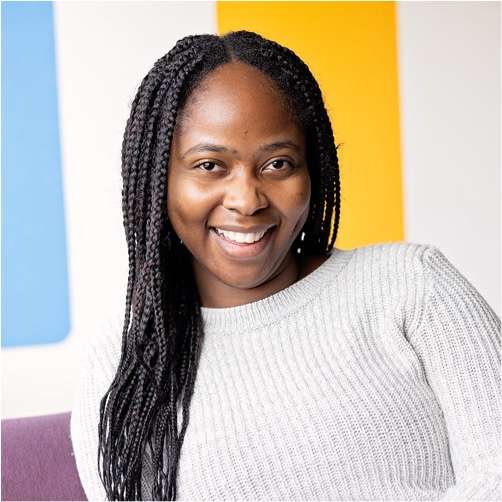
Karen Mutyabule
Learning & Engagement Coordinator
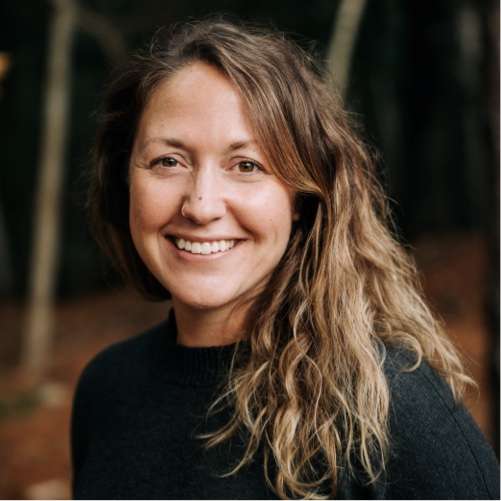
Annika Voltan
Executive Director
October is Canada’s Healthy Workplace Month, a theme that we have been reflecting on for quite some time and are excited to share some thoughts. This month’s blog is a collaborative effort between Executive Director, Annika Voltan and Research & Project Coordinator, Karen Mutyabule. From their perspectives, both will reflect on the ideas and practices of healthy workplace cultures.
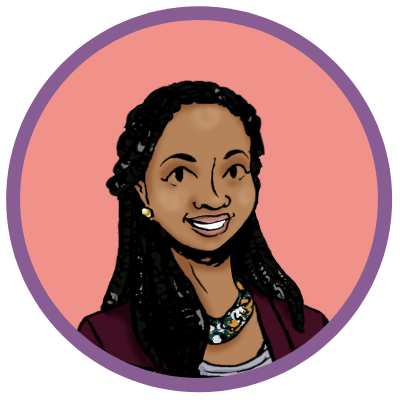
Karen
As a Black woman of African descent, Ubuntu, as a principle is something that my father and mother talked about when I was younger, infusing it into our familial practices with an expectation that it should be shared with others. Ubuntu means “I am because you are.” A value that calls for us to take care of ourselves, our living spaces, and our community in a way that is considerate, communal, and radically generous.
During my undergraduate experience, I moved out of the university residence after two years and into a house with two of my friends that I had met at university. One of them is originally from Kenya and the other is from Zambia. While staying in residence, we often visited friends living off-campus and quickly noticed that there was a common way of living that felt misaligned with the community-living that we anticipated creating. This common way of living looked like partitioned fridges, labeled food, sectioned cabinets that had similar snacks, and stove schedules for when each person would cook every day.
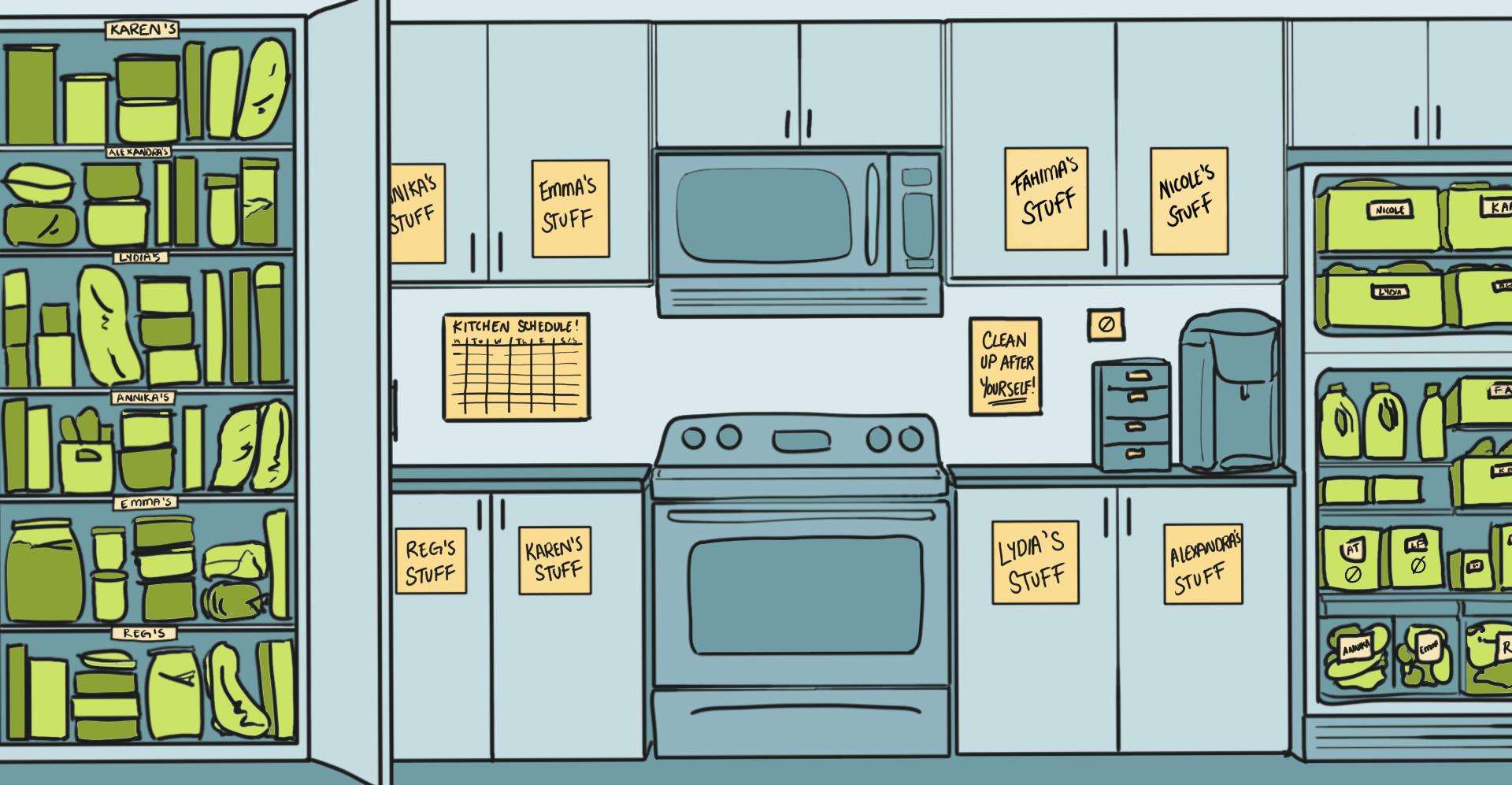
As three women coming from away, we were committed to creating an experience of care for each other that made sense for the collective. One where each of us felt included and like we belonged to a space that cared for us deeply. We shopped together, cooked for each other (one person cooking for all three and taking turns), and cleaned for each other. Unless someone had an evening class, we often ate dinner together and all food was shared amongst everyone. A shopping trip ensued when we were out of items – no partitions, no labels, no rations. Yes, that meant often covering some food items you did not personally consume, but we didn’t mind knowing that someone else would appreciate it. We resisted the accountant style of living that balances books and ensures you pay (physically and financially) for everything you enjoy or consume.
It was always a pleasure to come home to a cooked meal after a long day of classes and studying, to have the groceries bought and stored away when you had to work on an essay, to have the place cleaned when life was beating you down in different ways, and to have wholesome conversations together over dinner to unwind from the day. Ultimately, we felt seen and held by each other, and quickly felt that we had created a home away from home.
When visited by other friends, we often got comments in amazement at the way we did things and the conclusion was that we must be sisters, or at least, childhood friends.
Abundance and generosity, if present, is typically reserved for deep familial ties. We live in a capitalist world that fuels individualism. As such, there is a sense that we must go out there and fend for ourselves, our paychecks, our accolades, our certifications, and our net worth. Capitalism squeezes the collective thinking from us. It takes intentional effort to step back and realize that there are people around us and take the initiative to care of them.
While generosity can more easily be envisioned for a household, how can that translate into the workplace? Quite simply, it is about creating a workplace where we support each other to achieve the shared goals of an organization. We mostly work in teams because it takes a team to get the work done, staying true to the African proverb, “If you want to go fast, go alone. If you want to go far, go together.”
Going far together requires that we show up for each other. I can think of ways that I’ve seen that in my workplace. I think to the times, when in a rush between back-to-back meetings, I left my dishes in the shared kitchen sink. I found them cleaned when I came back to wash them. When my colleagues came to pick me up to save me from walking because it was dark outside, and they wanted to be sure I was safe. When another made some food from my home country that I had been talking about missing and delivered it to my house. When the team was asked to think about items that could be purchased to make the office feel more like home. When my colleagues send me resources that are tailored to my interests for personal development. When a colleague cleared her schedule so that she could drive me around to do some errands.
When we act in alignment with Ubuntu in the workplace, we feel seen and supported by others and as such, we show up better for ourselves, for each other, for our work, and for the communities we serve.


Annika
Last week marked my one-year anniversary as the Executive Director of CSCNS. About a year ago I wrote my first blog post in this new role called “Sitting in Liminal Space” and reflected about being in a place of transition where, “The possibilities ahead are vast, and present opportunities for transformative change” and the great opportunity “If we can hold the discomfort and not rush forward too quickly in a search for how things have been done up to now.”
Fast forward to the present, and this feeling holds as strongly now as it did then. We’re still in a global pandemic, but we’re learning to live in this new reality. And, at CSCNS, we’ve had what I would proudly call a transformative year.
VALUES. We’ve done a lot of work around new programming, research and sector supports. But in the spirit of Healthy Workplace Month, I want to focus on how we’ve developed our internal culture. Within weeks of beginning, I engaged Lauren Sears from Imaginal Ventures to help guide us through a process of establishing our team values and group behavioural agreements (we’ll be sharing more soon, but we landed on: Abundance, Courage, and Trust). This process took time and unearthed different perspectives and tensions. We learned to communicate with each other and to navigate conflict. We shared our personal vulnerabilities. We went deep into understanding our collective beliefs around dismantling oppressive systems rooted in colonialism and capitalism.
COMMUNICATION. Over the year our team grew from 3 to 8 and we remained committed to being intentional about the culture we are nurturing. We needed new communication tools and points of connection to support our virtual and in-person hybrid work approach. We implemented MS365 and committed to an extensive learning journey on how to use it to support our work. We also started a variety of weekly meetings including our “Apples, Onions, Peaches,” (we’ve since swapped the Peaches for Kudos to hold a place for celebration each week, so we’ve moved to “AOK” Meetings). We incorporated Abby VanMuijen’s emotion wheel into our regular check-ins as a way of acknowledging that emotions are multi-faceted, and people bring their whole selves to work. And we had our first team retreats to go deep into what we do and how.
Again, tensions emerged around personal preferences and communication styles, but we stuck to an iterative process of trying, changing, and re-trying to get to a place that helps us each feel connected to our broader purpose while not being overloaded with information. It’s still a work in progress but we are finding ways to make decisions together, hold tough conversations, and focus on what’s best for the team.
PURPOSE. One of the most influential factors affecting an organization’s ability to have impact is a sense that each person’s work is connected to the overall purpose of why we’re doing what we’re doing. Over the past year we’ve been working behind the scenes on a major rebranding initiative with R&G Strategic that we’ll be launching in early 2022 (!!). We’re also developing a Theory of Change and evaluation framework with Inspiring Communities.
Each of these processes has involved a big time and energy commitment from the team that I’m so grateful for. They’ve required that we reflect on our vision, why we exist, the value we offer to the sector, and our aspirations for the future. It’s been incredibly rewarding to see the benefits of our commitment to practicing tough conversations show up as a sense of alignment around where we are now and where we want to go together. Reading Karen’s words, she shared examples I wasn’t even aware of, but that I feel are such gratifying results for why I believe it’s so important to spend time developing relationships, trust, and spaces for reflection.
Final Thoughts
In the words of Brené Brown (a team favourite!):
To scale daring leadership and build courage in teams and organizations, we have to cultivate a culture in which brave work, tough conversations and whole hearts are the expectation, and armour is not necessary or rewarded. If we want people to fully show up, to bring their whole selves, including their unarmoured, whole hearts – so that we can innovate, solve problems, and serve people – we have to be vigilant about creating a culture in which people feel safe, seen, heard and respected.
Be brave. Be radically generous. Embrace Ubuntu.
If you enjoyed this content and would like to go further, check out this 3-part series on Reimagining Productivity written by Annika Voltan and Saralyn Hodgkin.
Authored by:

Karen Mutyabule
Learning & Engagement Coordinator

Annika Voltan
Executive Director
Liked this post? Please share!
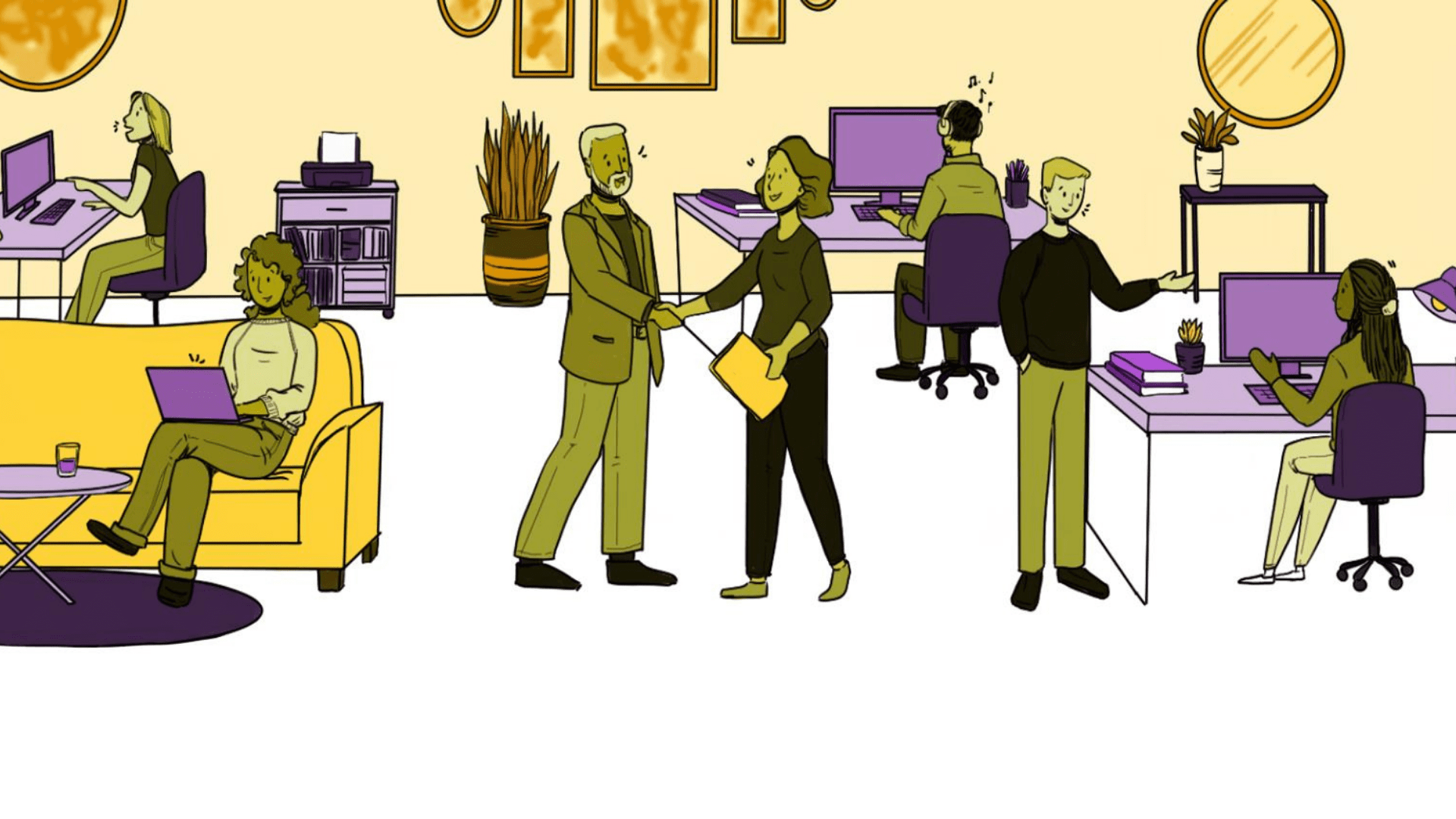
Thoroughly enjoyed your article! Kudos to you both.
Thank you! Happy to hear that this resonated with you! – Karen